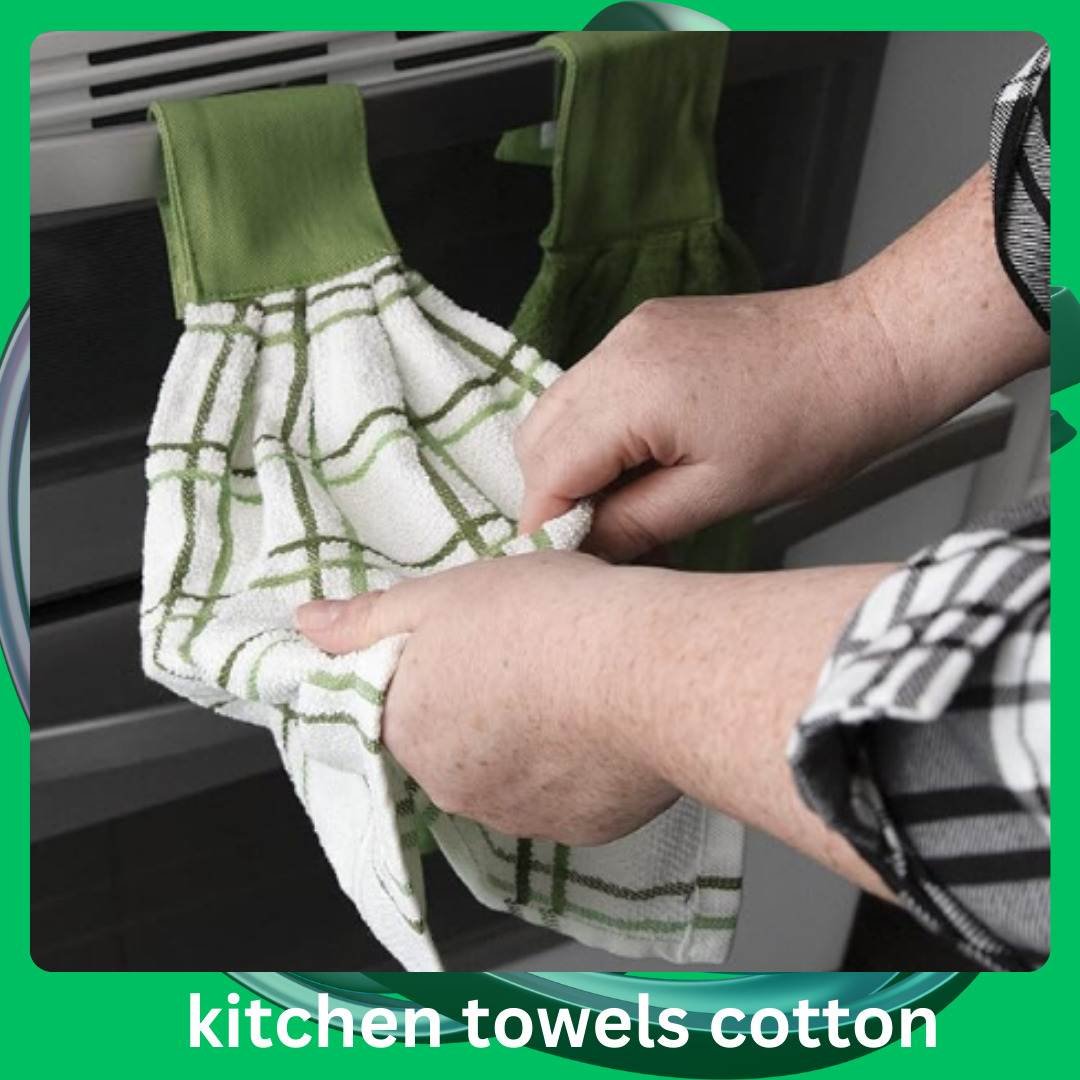Kitchen towels are an indispensable part of any kitchen, serving a variety of purposes from drying dishes and hands to cleaning spills and handling hot cookware. Despite their ubiquitous presence, kitchen towels often don’t receive the attention they deserve in terms of selection, usage, and maintenance. This comprehensive guide covers everything you need to know about kitchen towels, from the types available and their uses to tips on choosing the right ones and maintaining them for longevity.
Introduction
Kitchen towels are more than just pieces of fabric; they are essential tools that enhance kitchen efficiency and hygiene. Given their frequent use, selecting the right kitchen towels can make a significant difference in your daily kitchen activities. This guide aims to provide detailed information on the various aspects of kitchen towels, helping you make informed decisions and ensuring your kitchen runs smoothly.
Types of Kitchen Towels
Kitchen towels come in various types, each designed for specific tasks. Understanding the differences can help you choose the right towel for each purpose.
Dish Towels
Hand Towels
Hand towels are used for drying hands after washing. They are typically placed near the sink for easy access. Softness and absorbency are key features of good hand towels.
- Cotton Hand Towels: Cotton hand towels are soft on the skin and highly absorbent, making them perfect for frequent hand drying.
- Microfiber Hand Towels: Microfiber is known for its exceptional absorbency and quick-drying properties. It is also very soft, making it a comfortable option for hand drying.
Tea Towels
- Decorative Tea Towels: These towels often feature prints or embroidery and are used more for display or light tasks rather than heavy-duty cleaning.
- Utility Tea Towels: Made from durable and absorbent materials, these are designed for more practical kitchen tasks.
Bar Towels
- Cotton Bar Towels: These are typically made from thick, absorbent cotton, capable of handling large spills and heavy cleaning tasks.
- Microfiber Bar Towels: Known for their superior absorbency and quick drying, microfiber bar towels are effective for cleaning and polishing surfaces.
Chef Towels
- Huck Towels: Originally used in medical settings, huck towels are highly absorbent and lint-free, making them ideal for professional kitchen use.
- Terry Cloth Towels: Made from looped cotton, terry cloth towels are absorbent and durable, suitable for various kitchen tasks.
Microfiber Towels
- General-Purpose Microfiber Towels: Suitable for a variety of kitchen cleaning tasks, these towels can clean surfaces without leaving streaks or lint.
- Specialized Microfiber Towels: Some microfiber towels are designed specifically for tasks such as polishing stainless steel or cleaning glass.
Electric scooter for kids
Choosing the Right Kitchen Towels
Selecting the right kitchen towels involves considering several factors, including material, absorbency, durability, and intended use. Here’s what you need to know to make the best choice for your kitchen.
Material
The material of a kitchen towel greatly influences its performance and suitability for specific tasks.
- Cotton: Cotton is the most common material for kitchen towels due to its high absorbency, softness, and durability. It is ideal for drying dishes, hands, and general cleaning tasks.
- Linen: Linen is known for its lint-free and quick-drying properties. It is perfect for drying glassware and delicate items where a streak-free finish is desired.
- Microfiber: Microfiber towels are made from synthetic fibers that are exceptionally absorbent and quick-drying. They are excellent for cleaning and polishing tasks.
- Bamboo: Bamboo towels are eco-friendly and have natural antibacterial properties. They are absorbent and durable, making them a good choice for various kitchen tasks.
Absorbency
The absorbency of a towel is crucial, especially for tasks like drying dishes or cleaning spills. Towels made from cotton and microfiber are typically the most absorbent.
- Cotton Towels: High-quality cotton towels can absorb a large amount of water, making them ideal for drying dishes and cleaning up spills.
- Microfiber Towels: Microfiber towels can absorb up to seven times their weight in water, making them incredibly efficient for drying and cleaning tasks.
- Linen Towels: While not as absorbent as cotton or microfiber, linen towels still offer good absorbency and dry quickly, making them suitable for drying dishes and glassware.
Durability
Durability is important for kitchen towels, as they undergo frequent use and washing.
- Cotton Towels: High-quality cotton towels are durable and can withstand frequent washing without losing their absorbency or softness.
- Linen Towels: Linen is naturally strong and becomes softer with each wash, making it a durable option for kitchen towels.
- Microfiber Towels: Microfiber towels are durable and resistant to wear and tear. They maintain their absorbency and effectiveness even after many washes.
Intended Use
Consider the primary use of the towel when making your selection.
- Drying Dishes: For drying dishes, choose highly absorbent materials like cotton or microfiber.
- Cleaning Surfaces: For cleaning and wiping surfaces, microfiber towels are ideal due to their ability to pick up dirt and grime without leaving streaks or lint.
- Handling Hot Cookware: For handling hot pots and pans, choose thick, heat-resistant towels like terry cloth or huck towels.
- Decorative Use: If the towel is primarily for decorative purposes, choose one with attractive designs or embroidery, keeping in mind that it may not be as functional for heavy-duty tasks.

Using Kitchen Towels Effectively
Proper use of kitchen towels can enhance their effectiveness and longevity. Here are some tips on how to use different types of kitchen towels.
Drying Dishes
- Use Separate Towels: Have dedicated towels for drying dishes to avoid cross-contamination with towels used for other tasks.
- Pat, Don’t Rub: When drying delicate items like glassware, pat them dry rather than rubbing to avoid scratches and streaks.
Cleaning and Wiping
- Different Towels for Different Tasks: Use separate towels for different cleaning tasks to maintain hygiene and prevent cross-contamination.
- Fold and Use All Sides: Fold the towel into quarters to create multiple cleaning surfaces. This helps in using the towel more efficiently and evenly.
Handling Hot Cookware
- Thicker Towels: Use thick, heat-resistant towels when handling hot pots and pans to protect your hands from burns.
- Check for Damage: Regularly inspect towels for signs of wear and tear, as damaged towels may not provide adequate protection from heat.
Hygiene Practices
- Regular Washing: Wash kitchen towels frequently to prevent the buildup of bacteria and odors.
- Avoid Mixing: Don’t use the same towel for drying hands and cleaning surfaces to avoid spreading germs.

Maintaining Kitchen Towels
Proper maintenance of kitchen towels ensures they remain effective and hygienic for longer periods. Here are some tips on how to care for your kitchen towels.
Washing
- Frequency: Wash kitchen towels frequently, ideally after each use, to prevent the buildup of bacteria and odors.
- Temperature: Use hot water to kill germs and bacteria. However, always check the care label, as some materials may require cooler temperatures.
- Detergent: Use a mild detergent to avoid damaging the fibers. Avoid using fabric softeners, as they can reduce absorbency.
- Stain Removal: Pre-treat stains with a stain remover or a mixture of baking soda and water before washing. For stubborn stains, soak the towels in a solution of vinegar and water.
Drying
- Air Drying: Air drying is the gentlest method and helps preserve the fibers. Hang towels in a well-ventilated area to dry.
- Machine Drying: If using a dryer, choose a low heat setting to prevent shrinkage and damage to the fibers. Remove the towels promptly to avoid excessive wrinkling.
Storage
- Dry Completely: Ensure towels are completely dry before storing to prevent mildew and odors.
- Fold Neatly: Fold towels neatly and store them in a clean, dry place. This helps maintain their shape and prevents them from becoming musty.
- Rotation: Rotate your towels regularly to ensure even wear and prolong their lifespan.


